#Princess of Bavaria
Explore tagged Tumblr posts
Text
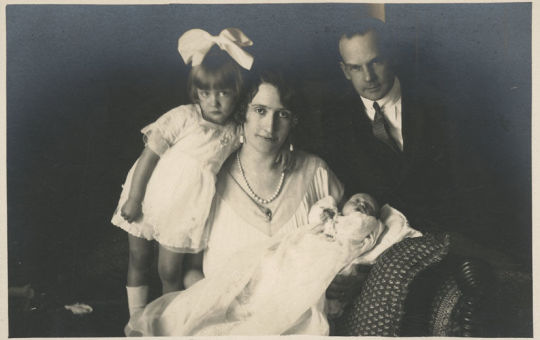
Princess Bona of Bavaria, nee Princess of Savoy-Genoa, with her husband, and their two children, Amalie Isabella and Eugen, in 1921.
#Princess Bona of Bavaria#Princess Bona of Savoy-Genoa#Princess Maria Bona of Savoy-Genoa#Prince Konrad of Bavaria#Princess of Bavaria#Prince of Bavaria#wittelsbach#royalty#history#princess#italian royalty
9 notes
·
View notes
Text

Elisabeth (Sissi) of Bavaria, Empress of Austria | 1865 Franz Xaver Winterhalter
#empress sissi#franz xaver winterhalter#portrait#royal portrait#neo rococo#art#painting#oil on canvas#bavaria#austria#historical figure#women in art#evening dress#white satin#tulle#princess dress#19th century fashion#1860s#💮💮
869 notes
·
View notes
Text

Devrim Lingnau and Melika Foroutan as Empress Elisabeth and Archduchess Sophie in a new poster for the second season of The Empress (2022).
#The Empress#The Empress (2022)#Die Kaiserin#costume drama#historical drama#period drama#devrim lingnau#melika foroutan#elisabeth of austria hungary#elisabeth of austria#Elisabeth in Bavaria#Archduchess Sophie of Austria#Princess Sophie of Bavaria#german tv#german series#Netflix
67 notes
·
View notes
Text
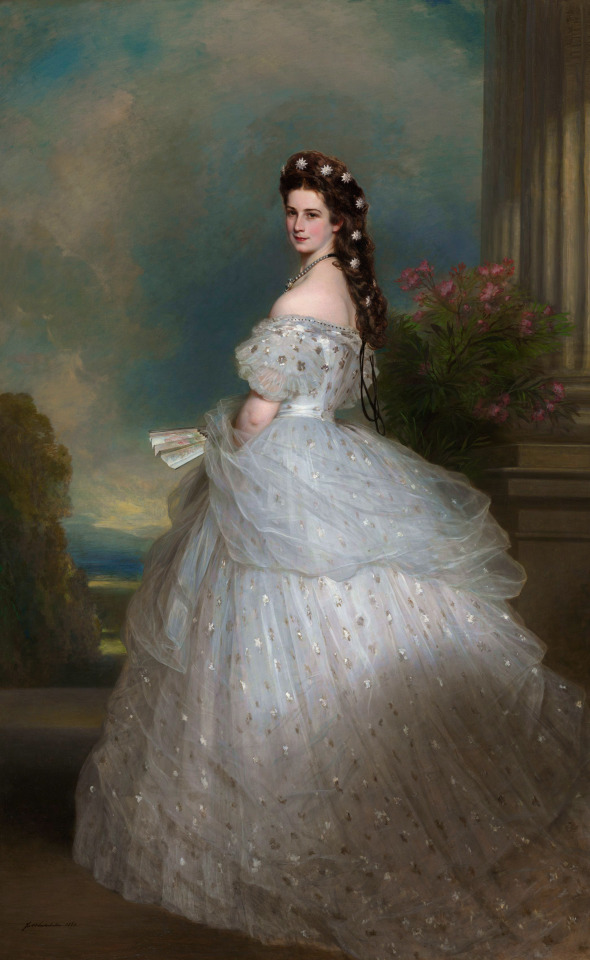
Archduchess Sophie to her son Archduke Maximilian, February 5 of 1863: The ball was said to have been very beautiful, as always at Alphons Pallavicini’s, and Sisi looked delicious in a light white dress interwoven with stars in matte silver and the diamond stars in her hair that look so good on her... At the court ball, Sisi’s dress was pinned all round with diamonds and rubies. I say this later because you and your wives [Archuke Karl Ludwig and his wife Maria Annunziata were staying in Trieste with his brother and sister-in-law] might be interested in jewellery and toilets.
Praschl-Bichler, Gabriel (2008). Unsere liebe Sisi. Die Wahrheit über Erzherzogin Sophie und Kaiserin Elisabeth (Machine translation. Please keep in mind that a lot of nuance may/will be lost)
Sisi’s success was overwhelming. In 1864, for example, she went to Dresden for her brother Karl Theodor’s wedding. After the court ball. Archduke Ludwig Viktor reported to Vienna that Sisi was “stunningly beautiful, also the people here acted insane. I have never seen anyone having such an effect before.” Sisi wore a white dress embroidered with stars, her famous large diamond stars in her hair, on her breast a corsage of camellias. Her sister “Helene, a very pale copy of the Empress, in a star dress also,” wrote Ludwig Viktor. At the wedding, the main attraction was not the bride, but Elisabeth. This time she appeared in a lilac dress embroidered with silver clover leaves, with a cape of silver lace, a diamond tiara on her intricately dressed hair. Ludwig Viktor: “the people here are so flabbergasted at our lady sovereign!!! they’re right.”
Hamann, Brigitte (1986). The Reluctant Empress: A Biography of Empress Elisabeth of Austria (translation by Ruth Hein)
#1863 mention of the star dress!! (if it's even the same. i choose to believe it is)#also reasons why i should be allowed to write a sisi series: i will have both elisabeth and helene in the star dress#(and helene WILL also look stunning in it idc what ludwig viktor said)#empress elisabeth of austria#helene in bavaria hereditary princess of thurn und taxis#historicwomendaily
45 notes
·
View notes
Text
youtube
'Sisi' was a terrible empress. Her romanticization needs to STOP.
In more recent decades, Elisabeth has received a growing attention in pop culture: there are several series, films and even a musical paying tribute to her legend. Her beauty is admired, her trials and tribulations are pitied, her struggle to escape the chafing constraints of royal life is celebrated. There's a whiff of feminism surrounding her lately - a strong, intelligent woman, metaphorically, and if we take the film Corsage, even literally flipping off the patriarchy. She's galloping through forests barefoot, she's facing off her tyrannical mother in law, she's fighting for her freedom, for control over her own life. German writer Karen Duve goes as far as to call Elisabeth "an undiscovered feminist icon."
But... was she? One of her ladies in waiting once said that Elisabeth will "live on in legend, not in history". And right she was. You see, Elisabeth has triumphed. When I look around, it seems as if we see her exactly as she would have wanted us to. A tragic heroine, a beautiful apparition, a nymph who somehow got trapped in the mortal realm, to her immense suffering. And for a modern woman, there is much to empathize with in Elisabeth: her sublime sensitivity, her iron self-discipline, her headstrong character, her inborn thirst for freedom. But upon lifting the starry veil of this ethereal fairy-tale queen, one will find the face of a much more complex, flawed and ultimately human woman. Self-obsessed and narcissistic, monstrously selfish and possessive, cruelly indifferent to her empire (with one all-consuming exception), incessantly self-victimizing and deeply, deeply unhappy - overwhelmingly through her own fault.
#empress sisi#elisabeth of austria#empress elisabeth of austria#elisabeth in bavaria#elisabeth of austria hungary#duchess elisabeth von wittelsbach#the empress#princess sisi#documentary#sissi trilogy#kaiserin elisabeth#kaiserin sisi#franz joseph of austria#kaiser franz joseph#franz joseph#mary vetsera#rudolf of austria#marie festetics#marie valerie#crown prince rudolf#gisela of austria#Youtube
74 notes
·
View notes
Text

Emperor Franz Joseph and His Bride on a Trip in the Area Around Ischl
Artist: Johann Erdmann Gottlieb Prestel (German, 1804-1885)
Date: c. 1853-1854
Medium: Oil on canvas
Collection: Kunsthistorisches Museum, Vienna, Austria
Description
The picture, which comes from the possession of the Office of the Master of the Horse, depicts the first joint outing of Emperor Franz Joseph and his bride Princess Elisabeth in Bavaria, which took place on August 21, 1853 near Bad Ischl. The young couple is sitting in a Landschützer, which is driven by Count Grünne, a confidant of the Emperor. The Landschützer, a rural open carriage, is drawn by six horses in the "wild" style. In this type of harness, which originated in Hungary, two horses are attached to the drawbar and four horses are harnessed in parallel to a front scale.
#landscape#painting#oil on canvas#carriage#horses#emperor franz joseph#austrian monarch#princess elisabeth of bavaria#bavaria#trip#men#girl#road#mountains#sky#costume#parasol#outing#austrian history#johann erdmann gottlieb#german painting#german art#austrian culture#artwork#oil painting#19th century painting#european art
21 notes
·
View notes
Text

TIARA ALERT: Sophie Alexandra Evekink wore the Bavarian Sapphire Floral Tiara for her wedding to Prince Ludwig of Bavaria at the Theatine Church in Munich, Germany on 20 May 2023.
#Tiara Alert#Princess Sophie#Bavaria#tiara#bridal tiara#sapphire#floral tiara#Bavarian Royal Family#Germany#German Royalty#Wittelsbach
242 notes
·
View notes
Text

Joseph Karl Stieler (German, 1781–1858) Sophie, Archduchess of Austria (née Princess of Bavaria), 1832 Gallery of Beauties, Nymphenburg Palace
Sophie was the eldest daughter of King Maximilan I of Bavaria and his second wife, Princess Caroline of Baden. She was thus a half-sister to King Ludwig I. She was also the mother of the future Emperor Franz Joseph of Austria.
#Joseph Karl Stieler#german art#germany#german#1832#1800s#art#fine art#european art#classical art#europe#european#fine arts#oil painting#europa#archduchess#princess#bavaria#female portrait#female#woman#brunette#blue eyes
32 notes
·
View notes
Photo

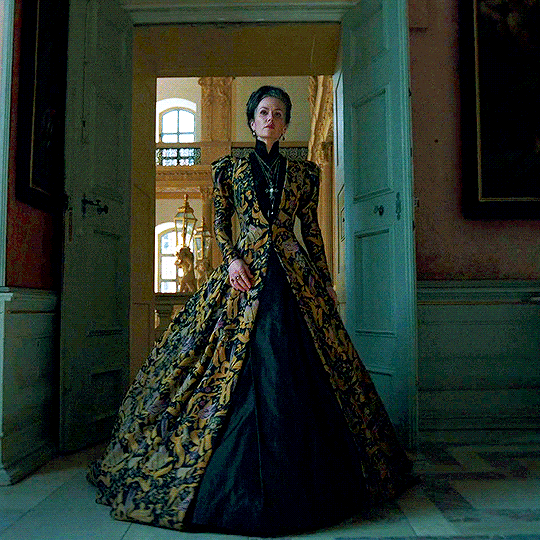
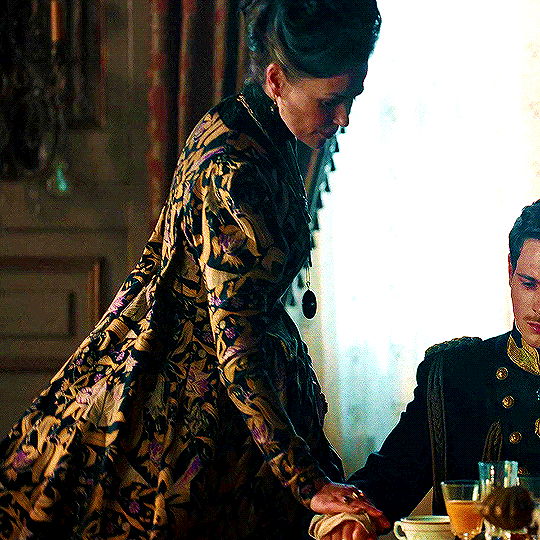

COSTUME APPRECIATION Princess Sophie, Archduchess of Austria, The Empress
#sophie of bavaria#princess sophie archduchess of austria#melika foroutan#the empress#theempressedit#perioddramaedit#periodedit#gifshistorical#userperioddrama#costumesource#gifs*#ca*#empress*
237 notes
·
View notes
Text







Royal Birthdays for today, January 8th:
Rudolph, Archduke of Austria, 1788
Prince Albert Victor, Duke of Clarence and Avondale, 1864
Elena of Montenegro, Queen of Italy, 1873
Elisabeth Marie of Bavaria, Countess of of Seefried and Buttenheim, 1874
Sirivannavari Nariratana, Princess of Thailand, 1987
Josephine, Princess of Denmark, 2011
Vincent, Prince of Denmark, 2011
#Elisabeth Marie of Bavaria#prince albert victor#elena of montenegro#princess josephine#prince vincent#Sirivannavari Nariratana#royal birthdays#long live the queue#archduke rudolph
10 notes
·
View notes
Note
hi again, may i make another request for an artwork of princess augusta of bavaria (love ur art and it deserves more recognition) <3
Hi again athqera!!
Sorry for the long wait I needed a little more time to think about what I wanted from this art. Anyway, Princess Augusta of Bavaria (Duchess consort of Leuchtenburg)!

#augusta of bavaria#french history#german history#napoleonic era#art#digital illustration#taniata's art#princess augusta of bavaria#was inspired by a her portrait I found by chance#it gave me special pleasure to draw this dress#its simple and beautifully#i hope you like it!#⭐ response to request
32 notes
·
View notes
Text

Princesses Elisabeth Marie and Auguste of Bavaria, daughters of Archduchess Gisela of Austria, by Heigl.
#princess elisabeth marie of bavaria#princess auguste of bavaria#wittelsbach#archduchess gisela of austria#habsburg#heigl#portrait
9 notes
·
View notes
Text
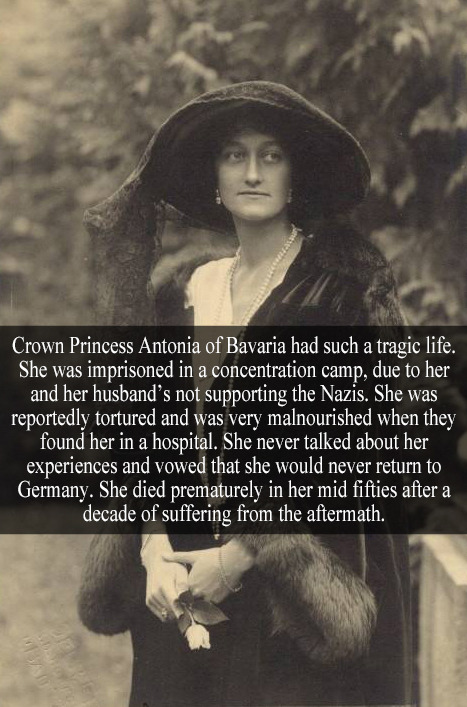
“Crown princess Antonia of Bavaria had such a tragic life. She was imprisoned in a concentration camp, due to her and her husband’s not supporting the nazis. She was reportedly tortured and was very malnourished when they found her in a hospital. She never talked about her experiences and vowed that she would never return to Germany. She died prematurely in her mid fifties after a decade of suffering from the aftermath.” - Submitted by Anonymous
38 notes
·
View notes
Text



Devrim Lingnau and Melika Foroutan as Empress Elisabeth and Archduchess Sophie in the second season of The Empress (2022).
#The Empress#The Empress (2022)#Die Kaiserin#period drama#costume drama#historical drama#devrim lingnau#melika foroutan#elisabeth of austria hungary#elisabeth of austria#Elisabeth in Bavaria#Archduchess Sophie of Austria#Princess Sophie of Bavaria#german tv#german series#Netflix
29 notes
·
View notes
Text

Letter from Archduchess Sophie to her daughter-in-law Archduchess Margarethe, on the Christmas Eve of 1857:
December 28, 1857 … Christmas presents downstairs with my children [the Imperial couple and their daughter Archduchess Gisela] went much better than we could have expected after our painful loss [the death of the couple's first child, Sophie, on May], as our dear, now only child softened all the melancholy memories with her so kind friendliness and joy. When her father carried her into all the splendors, she looked around in silent amazement, then standing at her little table, she looked closely at every toy, held a stuffed puppy, which set a clockwork in motion and which wriggled on all its limbs, calmly in her little hand and played delicately, so calmly and joyfully with all her splendors. Once she shouted for joy, which is her habit when she is happy, and the next morning every time she saw all her beautiful things again in the next room, only a few of which she gets to play with every day, she shouted for joy again! - When her mother said she had to go to bed on Christmas Eve, she went gently, without reluctance. She only slipped two bracelets, which her beloved grandfather and I had given her, off her arms with difficulty, thinking she would have to leave them with the toys and wanted to give them to Sophie Esterhazy [Oberhofmeisterin of the Empress], but she kept them firmly in her hands and after a few bows she went her way in a friendly manner.
Praschl-Bichler, Gabriel (2008). Unsere liebe Sisi. Die Wahrheit über Erzherzogin Sophie und Kaiserin Elisabeth (Translation done by DeepL. Please keep in mind that in a machine translation a lot of nuance may/will be lost)
[Pictured: Litography of Archduchess Gisela, by Adolf Dauthage, 1860].
#''our dear now only child'' :(#sophie of bavaria archduchess of austria#margarethe of saxony archduchess of austria#gisela of austria princess of bavaria#empress elisabeth of austria#franz josef i of austria#sophie of liechtenstein countess esterhazy
13 notes
·
View notes
Text

Princess Sophie Alexandra of Bavaria || WONÁ Concept
6 notes
·
View notes